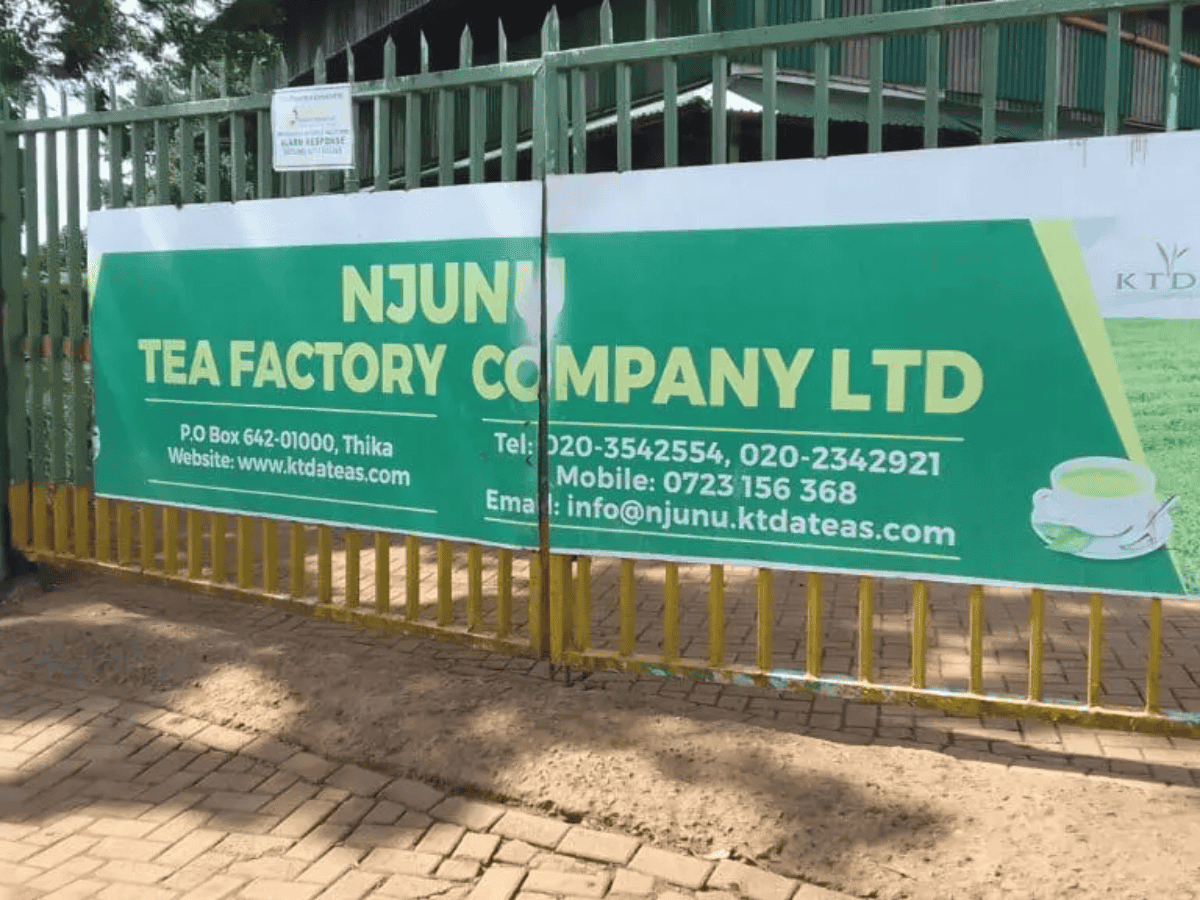KENYA – Njunu Tea Factory in Gatanga sub-county has launched the construction of a new KES 300 million (US$2.32M) facility to diversify into specialty tea production.
The project, which will focus on orthodox tea brands, is set to tap into growing demand in local and international markets.
The facility will be developed in two phases, with the first phase scheduled for completion by September next year, according to factory Chairman John Matheri. The factory aims to begin specialty tea production by the end of 2025.
Speaking at the groundbreaking ceremony, Matheri highlighted the potential of orthodox tea to boost farmers’ incomes.
“The production and sale of specialty tea will offer better returns to farmers. This is a significant step for Njunu as we seek to join other KTDA-affiliated factories in manufacturing high-demand orthodox tea brands,” he stated.
Facility to enhance production efficiency
The new facility will integrate tea withering and orthodox tea manufacturing under one roof. Once the building is completed, the factory will install an automatic withering machine to process green leaf efficiently ahead of introducing specialized manufacturing equipment.
“This investment reflects our commitment to delivering value to farmers and positioning Njunu as a leader in specialty tea production,” Matheri said.
Farmers advocate for policy support
During the event, Vice Chairman Maina Gathua called on the government to reinstate the reserve price for tea to protect farmers from market volatility. The reserve price, suspended recently, ensured buyers adhered to a minimum price, safeguarding farmers against low returns.
“The absence of a reserve price encourages buyers to opt for cheaper, lower-quality teas, undermining the earnings of farmers producing high-quality tea,” Gathua emphasized.
Additionally, Gathua criticized amendments to the Tea Act 2021, which increased the management fee from 1.5% to 2%. He urged parliament and the Tea Board of Kenya (TBK) to consult stakeholders through public participation before implementing such changes.
“This retrogressive move risks reversing the progress made in the sector. Farmers deserve policies that support growth, not hinder it,” Gathua remarked.
Industry outlook
Orthodox tea is a premium variety of tea made using traditional methods that involve hand-plucking and rolling tea leaves to preserve their natural flavors and aroma.
Unlike the more common Crush, Tear, Curl (CTC) method used for black tea, orthodox processing retains the full leaf, producing a nuanced flavor profile. This tea is preferred for its unique taste and health benefits, including higher antioxidant content.
Markets like India, China, and Europe are primary consumers due to their preference for high-quality specialty teas.
In Kenya, orthodox tea is emerging as a promising segment due to growing global demand, accounting for 25% of the country’s specialty tea segment.
The Kenya Tea Development Agency (KTDA) and private sector players are heavily investing in its production. For example, KTDA recently ramped up production at factories such as Kangaita, Kionyo, and Thumaita to cater to both international and local markets.
Revenue from orthodox tea exports is also increasing, with projections to contribute significantly to the tea sector by 2030.
However, local uptake is still modest, with manufacturers like Thumaita Tea Factory selling their products at KSh 120 (US$0.93) per packet, primarily through retail outlets.






